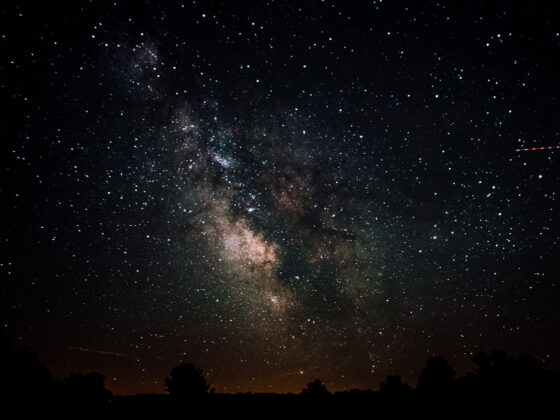Theoretical physicist Carlo Rovelli states in his book The Order of Time:
“We inhabit time as fish live in water. Our being is in time. Its solemn music nurtures us, opens the world to us, troubles us, frightens and lulls us.”
Carlo Rovelli, The Order of Time (New York: Riverhead Books, 2018), 1.
Yet physicists like Rovelli will admit we do not fully understand time. Time is both mystery and our “reality.” We humans crave and require time without understanding it.
Advent inaugurates the Church’s sense of time. It marks the beginning of a liturgical calendar and orders the way Christians ought to think of God, themselves, and the time they inhabit. Christian time begins, as does the book of Genesis, with light piercing darkness (Genesis 1:3).
I was raised in an environment without an intentional sense of liturgical time. In fact, I cannot recall hearing the word “liturgy” until I went to college. As part of an evangelical, non-denominational movement, my people took great pride in being free of the perceived constraints of so-called stuffy traditions. Liturgy, if the word could even be uttered, was something other Christians did, probably in Latin, because they did not have a personal, vibrant relationship with God. Though I can appreciate an aversion to religious formalism, Christians who avoid liturgy and a liturgical sense of time do so to their detriment—particularly during the season of Advent.
The word “liturgy” is a combination of two Greek words—leitos (meaning “people”) and ergos (meaning “work”). It is a public, social project of formation to which we voluntarily submit ourselves. Liturgy is ever-present and always at work even if we are not aware of it. The goal then is awareness; voluntarily choosing the work, the people, and the sense of time we allow to form us.
As a child, my liturgy was unconsciously the formational powers of the American economy. I knew what season it was by the aisles in the grocery stores. It was Christmas when Walmart began decking everything in green and red. I was prepared for Christmas, usually sometime in September, when my mother began playing the holiday albums of Frank Sinatra, Nat King Cole, and Sammy Davis Jr. My church recognized the turning of the time by changing our music from hymns and choruses to the carols. Yet all these adjustments to our lives revolved around superficial changes—different music, different decorations, and different spending habits. There was no sense that time had changed.
In the Gospel of Luke, we are left with the impression that time has definitively changed with the coming of Jesus’ birth. After disclosing her pregnancy to her relative Elizabeth, Mary breaks into a song that echoes the poetry of the Hebrew Bible—what Christians called the Old Testament—when Hannah, the mother of Samuel, receives a promised child:
Luke 1:51-55
He [God] has shown strength with his arm;
he has scattered the proud in the thoughts of their hearts;
he has brought down the mighty from their thrones
and exalted those of humble estate;
he has filled the hungry with good things,
and the rich he has sent away empty.
He has helped his servant Israel,
in remembrance of his mercy,
as he spoke to our fathers,
to Abraham and to his offspring forever.”
This song, known as the Magnificat, is traditionally read at some point during the season of Advent. But we must pay attention to the way that the song, portrayed by Luke, bends our sense of time.
Mary looks to the future when people will call her blessed because of how God has used her. Her song, however, describes God acting in the present to bring about a Kingdom of reversals through the child in her womb. God has already scattered the proud Romans and dethroned pretender-kings. God has already lifted the lowly and filled the hungry while leaving the wealthy unsatisfied. Israel is already being aided by its God who is fulfilling the promises made to Abraham’s children to bless both Israel and all people.
This is what grammarians would call prolepsis—the describing of an event in the future as if it had already happened. When people say, “He’s a dead man walking,” they do not mean that the person is a zombie. They mean to say that the consequences of a person’s actions will inevitably come about—perhaps not a literal death, but a punishment of some kind. The phrase “dead man walking” assumes in the present the state that will occur in the future as if it has already occurred. It is possible that we might even use prolepsis and prophecy interchangeably.
The point of Mary’s proleptic song is that time has now changed. She perceives, as the Gospel of John puts it, that “light shines in the darkness, and the darkness has not overcome it” (John 1:5). Yet these things are celebrated before they occur. The obscenity of the super-rich has not yet felt hunger. Those who wield power for their own benefit still appear to reign. Still, Mary’s song of proleptic hope strikes the first blow to the fortress of the strong the same way the first ray of sunrise pierces the darkness.
There are several protests we could raise that Advent is no longer useful to us. Deconstructed Christians and historical literalists might say that December 25th is, in fact, probably not Jesus’ real birthday. The timing of Christmas around the winter solstice occurred because the emperor Constantine appropriated the pagan holiday of Saturnalia and the Invincible Sun into Christianity to achieve political power.1 Despite valid arguments that this gives Constantine too much credit, it is almost certainly not the actual birthday of Jesus.2
Others might say that the hope of Advent has proved false. Jesus has not yet returned. People appear lonelier, angrier, and more isolated than ever. Trust in institutes, be they political or religious, is low. Christianity is, in part, a failed religion.3 Why pretend that things are other than they are? Why look for hope from the outside when we ought to get busy doing things ourselves?
I have raised these questions myself. Factual evidence exists for all these points. I would also add that, per Carlo Rovelli and other physicists, time itself is a construct—as much as any claim to divine perspective or truth. Christians need Advent, not because the events it recounts are historically true or because its theology has been clearly realized, but because Christians must exist in time regardless of these things. And Christians, perhaps now more than ever, need an alternative reality and sense of time. We need to adopt a proleptic Advent which tells us that light has already broken the darkness even as we await it in our experience. Advent is the orientation we all need, the yearly reminder that reality is not as it seems.
Footnotes
1 https://www.britannica.com/story/why-is-christmas-in-december
2 https://penelope.uchicago.edu/~grout/encyclopaedia_romana/calendar/invictus.html
3 Brian McLaren, Do I Stay Christian (St. Martin’s Essentials, 2022). Chapter 8 of McLaren’s book is titled “Because Christianity Is a Failed Religion (Lack of Transformation).”
Photo Credit: Jared Crouse
Caleb Gilmore is a teaching pastor at Crossings Knoxville in Knoxville, TN. He also is a Hebrew Bible instructor at Johnson University. He received his doctorate from Hebrew Union College - Jewish Institute of Religion in 2022 and is interested in the religious systems of the Bible, the history of biblical interpretation, and Jewish studies. He is a Cincinnati sports enthusiast, runner, and a bibliophile.






